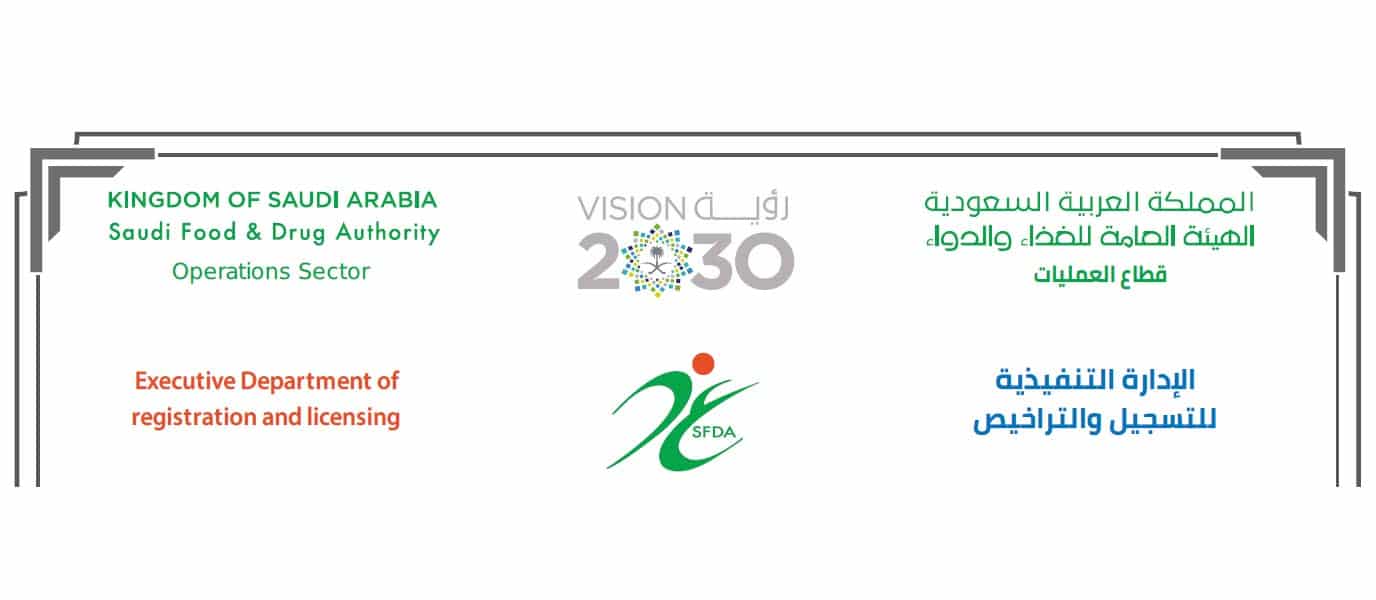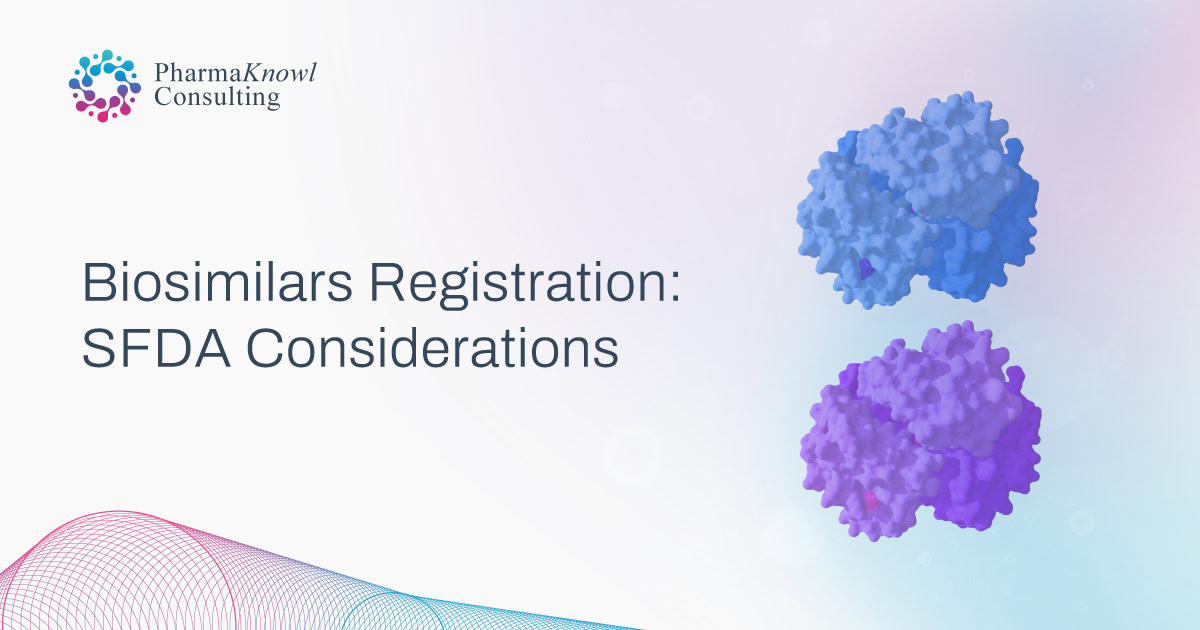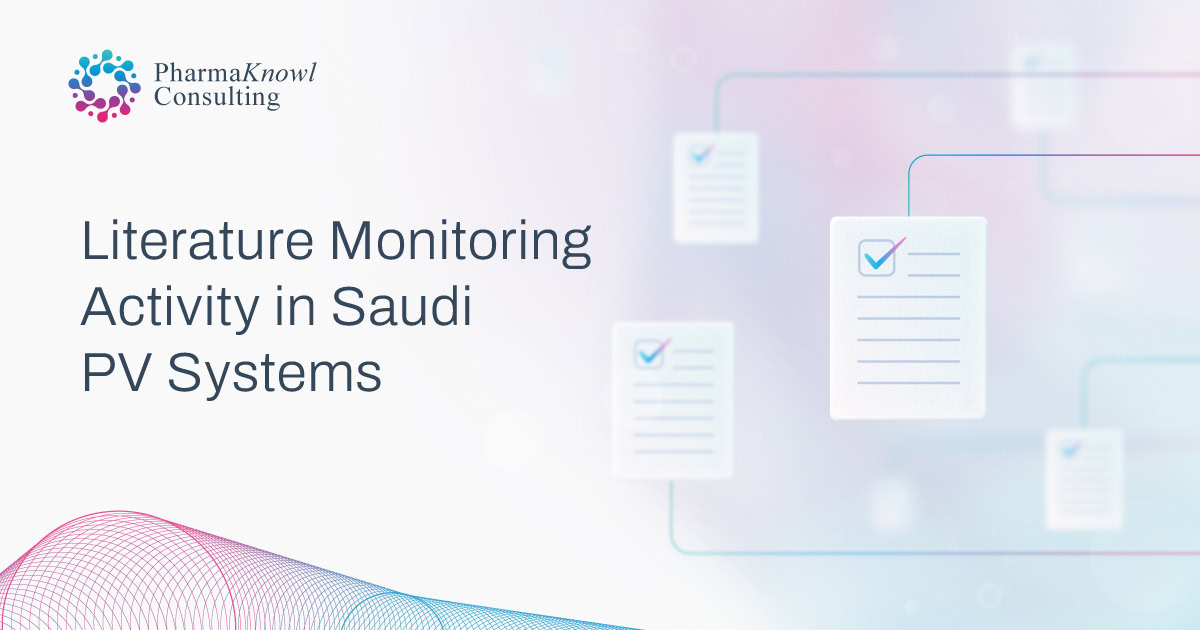
About the Author
Mohammed Jobran
Regulatory consultant with over 20 years of experience working for SFDA, multinational companies, and as a consultant in PharmaKnowl, supporting local and multinational companies in Saudi Arabia.
The Saudi Food and Drug Authority (SFDA) regulates the life science industries in Saudi Arabia, ensuring that products meet stringent safety, efficacy, and quality standards. The range of regulated products includes pharmaceuticals, biotechnology, medical devices, herbal products, nutraceuticals, cosmetics, food and supplements, as well as veterinary and animal health items.
All companies seeking to market these products in Saudi Arabia must complete SFDA registration. Upon successful review, the company receives an SFDA certificate confirming the product’s approval status.
In this post, we will clarify:
- How to register your products
- Who can apply
- What the SFDA registration requirements are
- How PharmaKnowl can assist you
Table of contents
About the SFDA
The Saudi Food and Drug Authority (SFDA) oversees human and animal products to safeguard the public from harmful, substandard, falsely advertised, counterfeit, or ineffective products. Its core mandate is to ensure product safety, efficacy, and quality.
Among regulatory bodies in the MENA region, the SFDA stands out as the most stringent due to ongoing advancements in Saudi pharmaceutical laws and the growing expertise of local scientists since its inception in 2004. This progress reached a significant milestone in 2021 when the SFDA became a full regulatory member of the International Council for Harmonisation of Technical Requirements for Pharmaceuticals for Human Use (ICH).
Furthermore, the SFDA achieved WHO Maturity Level 4, an acknowledgement reserved for national regulatory authorities that demonstrate a high level of regulatory performance and a commitment to continuous improvement.
As a result, many Gulf Cooperation Council (GCC) and MENA countries consider Saudi Arabia a key reference country.
SFDA Regulations
The SFDA regulates three main sectors: food, pharmaceuticals (drugs), and medical devices. In addition to these primary areas, it oversees various healthcare products, including herbal items, dietary supplements, cosmetics, biocides, medical supplies, pesticides, and animal health products such as veterinary drugs and feed additives.
The SFDA’s organisational structure is divided into three primary sectors: food, drugs, and medical devices. Each sector encompasses multiple procedures and registration pathways, depending on the product’s risk level, classification, and intended use.
For instance, food may be categorised as regular or supplements. Medical products might range from high-risk medical devices to low-risk medical supplies. Meanwhile, pharmaceuticals include innovative drugs, generic drugs, health supplements, herbal products, and cosmetics. Each product category has its specific requirements.
Beyond product approvals, the SFDA inspects and licenses entities such as manufacturers, warehouses, consulting firms, and Marketing Authorization Holders (MAH). Its regulations sometimes extend to brand owners, license holders, and raw materials suppliers.
Companies eligible to apply to SFDA
Local regulations allow specific legal entities to submit applications to the Saudi FDA. The following are the available options for local and international companies.
Local Companies
Local Saudi companies can submit their applications directly to the SFDA, provided they have the appropriate license for the relevant activity and the necessary access to the related electronic systems. Examples of local companies that may qualify include:
- Distributors
- Manufacturers
International Companies
International companies can submit to SFDA through one of the following entities:
- Distributors
While delegating product registration responsibilities to a distributor may be cost-effective, it often falls short in other critical areas. They may lack the regulatory expertise, focused attention, and strategic alignment. All are leading to longer timelines and complicating the registration process. - Foreign investor license
An international company may establish a local entity as a foreign investment firm through the Ministry of Investment. Then, it can apply directly to the SFDA. - Scientific office
International pharmaceutical companies can set up a scientific office to manage many supporting functions, including regulatory affairs. This approach is well-suited for established businesses in Saudi Arabia that plan to build their in-country team. - Consulting Company
International companies can register their products through an SFDA-licensed consulting firm or an authorised representative, which can handle the registration process on their behalf. This approach offers a range of benefits, including:- Neutral, Non-Commercial Partnership: Work with an independent entity focused on your regulatory success.
- Professional Regulatory Support: Access expert guidance to navigate complex regulations.
- Data Privacy Protection: Maintain strict confidentiality of proprietary information.
- Enhanced SFDA Communication: Benefit from proactive, specialised engagement with the authority.
- Complete Control: Retain power over product licenses and appointed distributors.
- Accelerated Access: Instead of spending months searching for the right partner before initiating product registration, PharmaKnowl can register your products concurrently while you are identifying the right local distributor. This way, you gain a faster path to market and negotiate with partners in a more powerful status. Contact us for more details.
SFDA Approval
The SFDA approval process involves a comprehensive scientific and regulatory review, ensuring that products are safe and effective for public use. This stringent evaluation is done for highly regulated product categories and can vary depending on the type of application and submission pathway within the authority.
Once the application reaches the regulatory department, they distribute the relevant sections of the file to assessors in the appropriate departments. Each assessor evaluates the submitted information against the applicable SFDA standards and compiles a report outlining comments and deficiencies. The product manager then consolidates this feedback and sends it to the applicant as an “SFDA Inquiry” or “Request for Information” (RFI).
Certain products, such as pharmaceuticals, undergo additional layers of scrutiny. These can include departmental meetings, laboratory testing, Good Manufacturing Practice (GMP) inspections, pricing committee evaluations, and final approval by the main drug committee.
Ultimately, the SFDA approves once the assessors have verified that all standards and requirements have been met, confirming the product’s eligibility for the Saudi Arabian market.
The review time varies according to the procedure type, the number of deficiencies, the frequency and complexity of RFIs, and the applicant’s responsiveness.
The following section provides a more detailed overview of the approval process for all product registration applications.
SFDA Registration
The SFDA registration is a meticulous process of assembling and submitting the product file to the appropriate SFDA division for a thorough evaluation. Following approval, the product is incorporated into the SFDA database, and an SFDA certificate is granted, affirming its marketing eligibility within the Kingdom of Saudi Arabia.
It’s essential to note that the SFDA handles specific products—like simple food items and cosmetics—differently in a “Notification” or “Listing” procedure. Under this approach, the authority does not conduct a full review, and the applicant is responsible for ensuring product compliance.
In contrast, most product categories must undergo thorough scientific and technical assessments before being granted marketing authorisation. Additionally, their manufacturers and other facilities may be evaluated and, in some cases, inspected on-site.
The term “SFDA Registration” applies broadly, encompassing even basic listings of products and facilities in the SFDA database. In contrast, “SFDA Approval” or “Authorisation” typically refers to more stringent regulatory reviews required for highly regulated products, such as pharmaceuticals and medical devices.
The following section details all SFDA registrations for products, manufacturers, MAHs, warehouses, and distributors.
Product Registration
Pharmaceuticals
The Saudi FDA’s drug sector publishes related guidelines, assesses drug registration applications, and issues marketing approvals and licenses. It publishes the registration requirements for chemical entities, biologicals, biosimilars, radiopharmaceuticals, health products, herbal products, generics, and veterinary drugs.
The SFDA links the drug marketing authorisation (MA) to three entities:
- The Marketing Authorisation Holder (MAH)
– MAH is the owner of the MA in Saudi Arabia.
– MAH must be a manufacturing company (with a few exceptions).
– MAH can change or add distributors and manufacturers at any time.
– MAH is always an international or local manufacturer, never a distributor or a consulting company.
– MAHs should keep MAs under their SFDA account, not with distributors. - The Manufacturer
One or more manufacturers are allowed. - The Distributor
One or more distributors are allowed.
The drug applications come in several types, as follows:
Human Drug Products
This application includes different drug types, such as new chemical entities (NCE), known active substances, biologicals, biosimilars, radiopharmaceuticals, and generics. In addition, this application can go through one or more of the following procedures and designations:
- Drug Registration (Regular pathway)
- Priority Review Procedure
- Abridged and Verification Procedures
- Conditional Approval Procedure
- Breakthrough Medicine Procedure
- Orphan Drug Designation
For more related drug regulatory posts, read:
Herbal and Health Products
Companies must register herbal and health products under the drug sector, which requires a CTD or eCTD file for registration.
Veterinary Drug Products
This application includes new veterinary drugs, biologicals, generics, herbal, and health animal products. The application can go through one or more of the following procedures:
- Drug Registration (Regular pathway)
- Abridged and Verification Procedures
Medical Devices
Medical device regulations in Saudi Arabia evolve rapidly, keeping pace with global advancements. The SFDA is the region’s most stringent authority regarding medical device registration requirements and the depth of technical file evaluation.
Below are two recent, noteworthy regulatory updates in Saudi:
- January 2022
Companies must submit a comprehensive Technical File Application (TFA) for devices in all risk classes, which resembles the EU Medical Device Regulations (MDR). - September 2022
The SFDA unified the requirements for all risk classes, making the appointment of an authorised representative mandatory for low-risk devices.
Cosmetics
Companies must register their cosmetic products before marketing them in the Saudi Arabian market. Unlike other product categories, the cosmetics registration process follows a “Notification Procedure.” This procedure means that the SFDA does not necessarily review the submitted data, and its system will list the product in its database even if it does not fully meet the applicable cosmetic standards at the time of listing. Consequently, the applicant must ensure the product complies with all relevant standards before applying.
After listing the cosmetic product, SFDA’s compliance checks occur both in the marketplace and, most notably, at the port of entry. During this inspection, SFDA officers verify product labels on every incoming shipment and request a Certificate of Conformity (CoC) for each batch. If a product fails these checks, shipments may be rejected at the border, and items in the market could be withdrawn.
To avoid such complications, it is crucial that all submitted documentation and product attributes strictly adhere to the Saudi and GSO standards throughout the entire submission and importing process.
Food
Food registration requirements are generally more straightforward than those of other product categories. Nonetheless, the SFDA still requires that the ingredients, labels, manufacturers, and raw material sources meet all relevant regulations and GSO (GCC) standards. While the SFDA does not conduct a comprehensive label review at the time of registration, it trusts the applicant to ensure compliance. The SFDA’s primary evaluation occurs at the port of entry, where labels and documentation are inspected to verify adherence to the prescribed requirements.
Food Supplements
Food supplements can be classified as food, health, or herbal products according to their ingredients and medical claims. A product classified under the food sector must be registered using the distributor’s account. In contrast, supplements categorised as health or herbal products can be registered directly with the SFDA, either through a consulting firm or via a distributor.
Sanitisers and Disinfectants (Biocides)
The SFDA oversees the registration of biocides, such as sanitisers and disinfectants. The classification depends on their intended use:
- Biocides for Human Use: Classified as health products.
- Biocides for Medical Instrument Use: Considered medical devices.
Determining the correct pathway often requires input from a subject matter expert who can advise on potential adjustments to the applicable process. Biocides not intended for human use are regulated by the Saudi Standards, Metrology, and Quality Organization (SASO) or the Ministry of Agriculture. These products may require a certificate of conformity.
Feed Additives
Registering animal feed additives (also referred to as fodder or forage) can vary in complexity based on ingredient composition and product claims. While standard approvals typically take two to four weeks, more complex products may require several months due to the need for scientific committee evaluations in the SFDA food sector.
Tobacco and Nicotine Products
In May 2015, a royal decree made the SFDA the official regulatory body for tobacco. It became responsible for tobacco standardisation, registration, clearance approval, and entity licensing. It also monitors the components and emissions of tobacco & nicotine products. The current Tobacco Regulations are:
Current Tobacco Regulations Include:
- Standards
SFDA applies the Gulf (GCC/GSO) standards concerning specifications and components. - Packaging
Plain packaging for cigarettes is enforced. - Electronic Cigarettes
The authority issued specific requirements and standards for e-cigarettes, heated cigarettes, and other related devices. - Licensing
Local distributors must obtain a special license to import and commercialise tobacco in Saudi Arabia.
Manufacturer Registration
In this section, we will discuss different types of manufacturers and whether they need to register with the SFDA or undergo a lesser compliance check.
Pharmaceutical Manufacturer
Pharmaceutical manufacturer registration is required for sites producing drugs, biotechnology, health, and herbal products. These sites are subject to mandatory inspection and fee payment. For more, read GMP inspection.
Food Manufacturer
Only poultry, dairy, and fish product manufacturers, including their related slaughterhouses and suppliers, are subject to registration and inspection. However, in some cases, inspection might be waived.
Medical devices Manufacturer
The need for inspection and registration applies to local medical device manufacturers and selectively to international ones.
Other Manufacturers
Other types of product manufacturers are not required to be inspected. They must submit a manufacturer license (ML) and other qualifications, such as ISO certifications and related audit reports.
Warehouse Registration
Local Saudi warehouses must receive an SFDA license before they start their activities. This includes all commercial activities involving any of the authority’s regulated products. The permit requires applying good distribution practice (GDP), quality system, ISO, and other requirements.
Distributor Registration
The distribution license is almost the same as the warehouse license. Adding importation activity is a must in addition to opening the required distributor accounts.
Timelines
The registration timelines depend on the application type detailed in our post: SFDA Timelines.
Fees
Government fees range from free for cosmetics to as little as $267 for a product classification to as high as $49,066.6 for a drug manufacturer registration. For more details, read SFDA Fees.
SFDA Certificate
A governmental document issued by the SFDA indicates that a company or product is registered or granted approval or authorisation for marketing in Saudi Arabia. This certificate is issued after completing the registration process. It gives the green light to manufacture and market products. It also allows clearance of imported product shipments at the Saudi ports.
The image below is the header of an SFDA certificate.
It is by applying the required standards and complying with the SFDA requirements. To learn more about the process, refer to the related product type in this article.
Regulatory Consulting and Services
At PharmaKnowl Consulting, we provide life science companies with the following services:
SFDA Registration Services
Securing SFDA approval for your products is at the heart of what we do. Our dedicated Riyadh-based pharmacists and biotechnologists can seamlessly integrate with your organisation and provide expert support and guidance.
Local Agent and Representation
International companies can consider PharmaKnowl as a non-commercial local agent (for pharmaceutical products) or an authorised representative (for medical devices), allowing them to access professional regulatory support, streamlined meetings with the SFDA, and expert guidance. This approach lets you maintain distributor relationships while benefiting from dedicated regulatory expertise.
Clinical Research
Our clinical team provides comprehensive clinical trials and research support, including patient recruitment, site management, data collection, and regulatory submissions.
Regulatory Project Management
Our regulatory project management services ensure seamless compliance with Saudi regulations. We successfully manage projects such as MA transfer (MAT), Technology Transfers, licensing, local manufacturing, and more.
Life cycle management
Our life cycle management (LCM) services ensure compliance for marketed products to maintain continuous supply. Companies can outsource all their LCM operations to our team.
Regulatory intelligence
Our regulatory intelligence service provides comprehensive insights into the latest SFDA regulatory requirements and updates in Saudi Arabia. We help you stay ahead of compliance changes and quickly navigate complex regulatory landscapes.
Pharmacovigilance
Our pharmacovigilance services in Saudi Arabia ensure compliance with SFDA regulations, providing full PV coverage by Saudi QPPVs.
For more information, Contact Us.
About the Author
Mohammed Jobran
Regulatory consultant with over 20 years of experience working for SFDA, multinational companies, and as a consultant in PharmaKnowl, supporting local and multinational companies in Saudi Arabia.
Have Questions? Lets Connect
Services
Events



